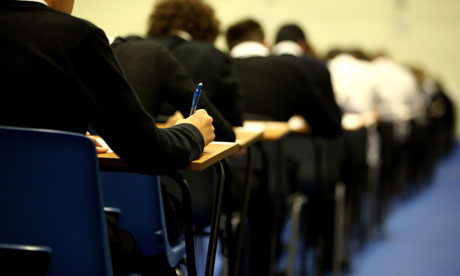Teachers Accused of Crimes against Pupils to Be Granted Anonymity
By Owen Bowcott
Teachers accused of committing criminal offences involving children at their school will be granted anonymity under regulations which come into force next week. Under the restrictions the married teacher Jeremy Forrest, who has gone missing in Europe with his 15-year-old student Megan Stammers, might not have been identified. The provisions, introduced under section 13 of the Education Act 2011, mean teachers will become the first group to receive automatic anonymity when accused of a certain category of criminal offences. Once the teacher has been charged he or she can be identified. Police, the media or anyone else would have to apply to a court to have the reporting restrictions lifted. Critics have warned the restrictions could hinder police appeals and searches for missing suspects. The anonymity relates to any complaint made by, or on behalf of, any pupil at the school at which the individual teaches. Section 13 of the act imposes reporting restrictions on "the publication of any information that would identify a teacher who is the subject of an allegation of misconduct that would constitute a criminal offence where the alleged victim of the offence is a registered pupil at the school". "Such restrictions would remain in place unless or until the secretary of state or the General Teaching Council for Wales publishes information about an investigation or decision in a disciplinary case arising from the allegation, or proceedings for the offence have been instituted." Bob Satchwell, executive editor of the Society of Editors, condemned the provisions as an attack on free speech. "It will be a criminal offence for anyone – pupil, parent, police, school, local authority, whistleblower, media – even to inform parents or the general public that an identified teacher has admitted that the allegation is true and has resigned, has been disciplined, or even cautioned for the offence," he said. "Although we acknowledge teachers' fears about false accusations, the most important issue is surely to protect children. Malicious allegations by pupils are extremely rare and, alongside this, the laws of libel, contempt and confidence already restrict newspapers from repeating and publishing unsubstantiated accusations." He added: "It is well-meaning legislation where ministers have accepted an argument by teaching unions that some teachers' lives can be seriously damaged by inaccurate accusations. But in trying to solve that problem, they're actually causing a bigger problem. It's the law of unintended consequences. They're trying to do something which is right, but in doing so they've made the situation worse." Parents would be banned even from discussing the allegations with their neighbours or other parents with children at the school, Satchwell said. The accused teacher could be disciplined, sacked and move on, but unless they were charged with a criminal offence, no one could name them and the new school might not be allowed to know there had been a problem, he said. The penalty for breaching the anonymity is a fine of up to ?5,000. During the passage of the bill, the government argued that anonymity was necessary to protect teachers from the "devastating consequences" of malicious accusations by pupils, even though it was pointed out that only 2% of allegations against teachers turned out to be malicious, and pupils had made 15 malicious claims in the previous few years.
|
.
Any original material on these pages is copyright © BishopAccountability.org 2004. Reproduce freely with attribution.
